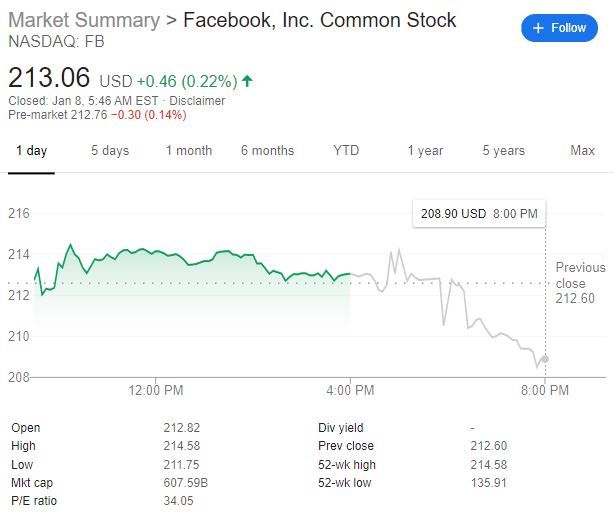The following picture shows the price of the FB stock on 1/7/2020 and 1/8/2020:
1/7/2020 Close: 212.60 USD
1/7/2020 After Market: 208.90 USD
1/8/2020 Pre-Market: 212.76 USD
- Did the price jump from 208.90 to 212.76 between 8:00 PM yesterday and 5:46 AM today happen through the buying of more shares in stock exchanges around the world?
- Is the stock price that a day starts with carried from the pre-market price? In the following example, the price of FB would be 212.76 at 9:30 AM when the market opens in the US?
- Do the DOW and NASDAQ future prices of stocks follow the trend of the pre-market carry the closing price of after-market from yesterday?

